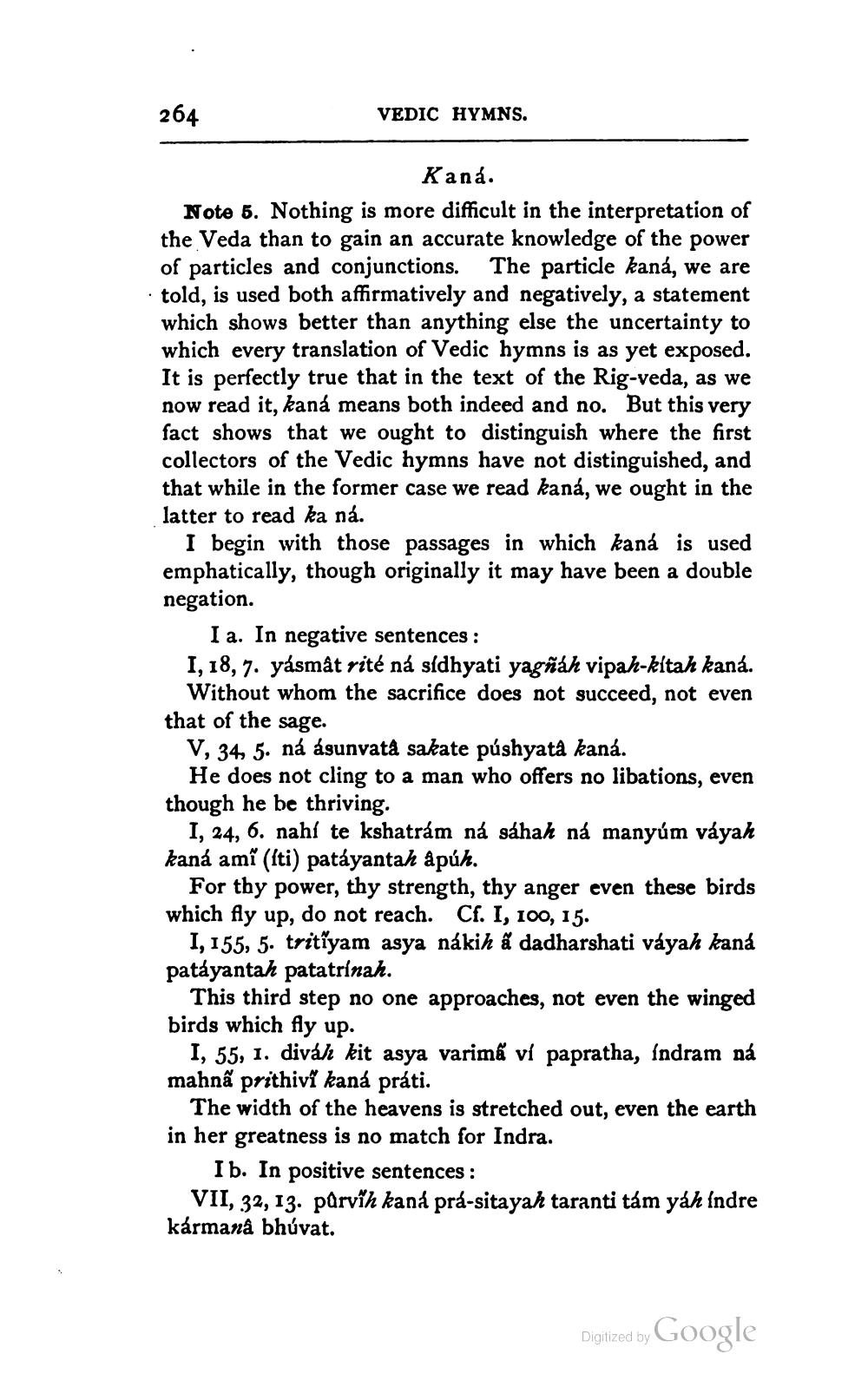________________
.
VEDIC HYMNS.
Kaná. Note 5. Nothing is more difficult in the interpretation of the Veda than to gain an accurate knowledge of the power of particles and conjunctions. The particle kana, we are · told, is used both affirmatively and negatively, a statement which shows better than anything else the uncertainty to which every translation of Vedic hymns is as yet exposed. It is perfectly true that in the text of the Rig-veda, as we now read it, kaná means both indeed and no. But this very fact shows that we ought to distinguish where the first collectors of the Vedic hymns have not distinguished, and that while in the former case we read kaná, we ought in the latter to read ka na.
I begin with those passages in which kaná is used emphatically, though originally it may have been a double negation.
I a. In negative sentences : 1, 18,7. yásmåt rité ná sídhyati yagñáh vipah-kitah kaná. Without whom the sacrifice does not succeed, not even that of the sage.
V, 34, 5. ná ásunvata sakate pushyata kaná.
He does not cling to a man who offers no libations, even though he be thriving.
I, 24, 6. nahí te kshatrám ná sáhah ná manyúm váyah kaná amî (sti) patayantah åpúh.
For thy power, thy strength, thy anger even these birds which fly up, do not reach. Cf. I, 100, 15.
I, 155, 5. tritîyam asya nákih â dadharshati váyah kaná patayantah patatrinah.
This third step no one approaches, not even the winged birds which fly up.
I, 55, 1. divál kit asya varimã ví papratha, indram ná mahnã prithivi kaná práti.
The width of the heavens is stretched out, even the earth in her greatness is no match for Indra.
Ib. In positive sentences : VII, 32, 13. pärvih kaná prá-sitayah taranti tám yah Indre kármana bhúvat.
Digitized by
Digilzed by Google




